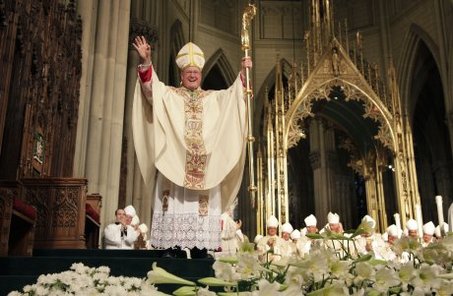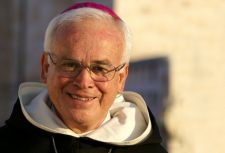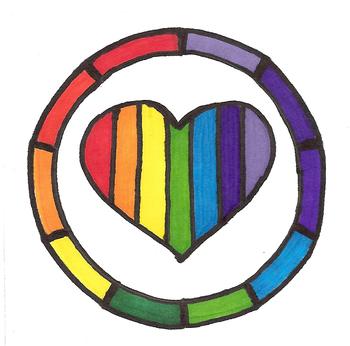The nation’s top Catholic bishop issued a stern challenge to the Obama administration’s decision not to support a federal ban on gay marriage, and warned the president that his policies could “precipitate a national conflict between church and state of enormous proportions.”
In a letter sent Tuesday (Sept. 20), Archbishop Timothy Dolan of New York, who heads the U.S. Conference of Catholic Bishops, said he and other prelates have grown increasingly concerned since the administration announced last February that it would no longer defend the 1996 Defense of Marriage Act in court.
The Obama administration says it believes the law that defines marriage as between one man and one woman is unconstitutional.
Dolan said the bishops are especially upset that the administration and opponents of DOMA are framing their argument as a civil rights issue, which he said equates “opposition to redefining marriage with either intentional or willfully ignorant racial discrimination.”
He also argued that traditional marriage is best for society, and that treating gay marriage as a civil right would lead to discrimination against believers and against church agencies that could not, for example, accommodate gay couples as adoptive parents.
“The administration’s failure to change course on this matter will … precipitate a national conflict between church and state of enormous proportions and to the detriment of both institutions,” Dolan warned.
The two-page letter was followed by a three-page analysis from the USCCB’s legal staff that charges the administration with “hostility” to traditional marriage and a “new, more aggressive position” on behalf of gay marriage. In especially strong language, it also argues that the administration treats millions of Americans who oppose gay marriage “as if they were bigots.”
The tenor of the bishops’ warning appears to signal an escalation in their battle against gay marriage, as well as a hardening of their opposition to Obama just as the 2012 presidential campaign gets underway. The bishops’ new hard line was welcomed by conservatives, and it comes as Obama is facing record-low opinion ratings.
The bishops’ stance carries risks, however, as voters appear to be focused on the state of the economy more than gay marriage. Moreover, polls show a steady erosion of opposition to gay rights of all kinds among the U.S. population, with Catholics more open to endorsing gay relationships than many other faith groups.
The bishops have been careful to frame their opposition to Obama’s policies in the context of religious freedom and defending the right of individuals and religions to act according to the dictates of their conscience.
On Monday (Sept. 19), the day before Dolan sent his letter to Obama on gay marriage, the bishops of Washington, Maryland and Delaware sent a letter to Health and Human Services Secretary Kathleen Sebelius that strongly objects to proposed regulations mandating health care coverage of contraception.
For the Catholic Church, which considers the use of artificial birth control a sin, the mandate is “a radically new and unprecedented attack on religious freedom,” said Washington Cardinal Donald Wuerl, Baltimore Archbishop Edwin O’Brien and Wilmington Bishop W. Francis Malooly.
Full Article HERE!




